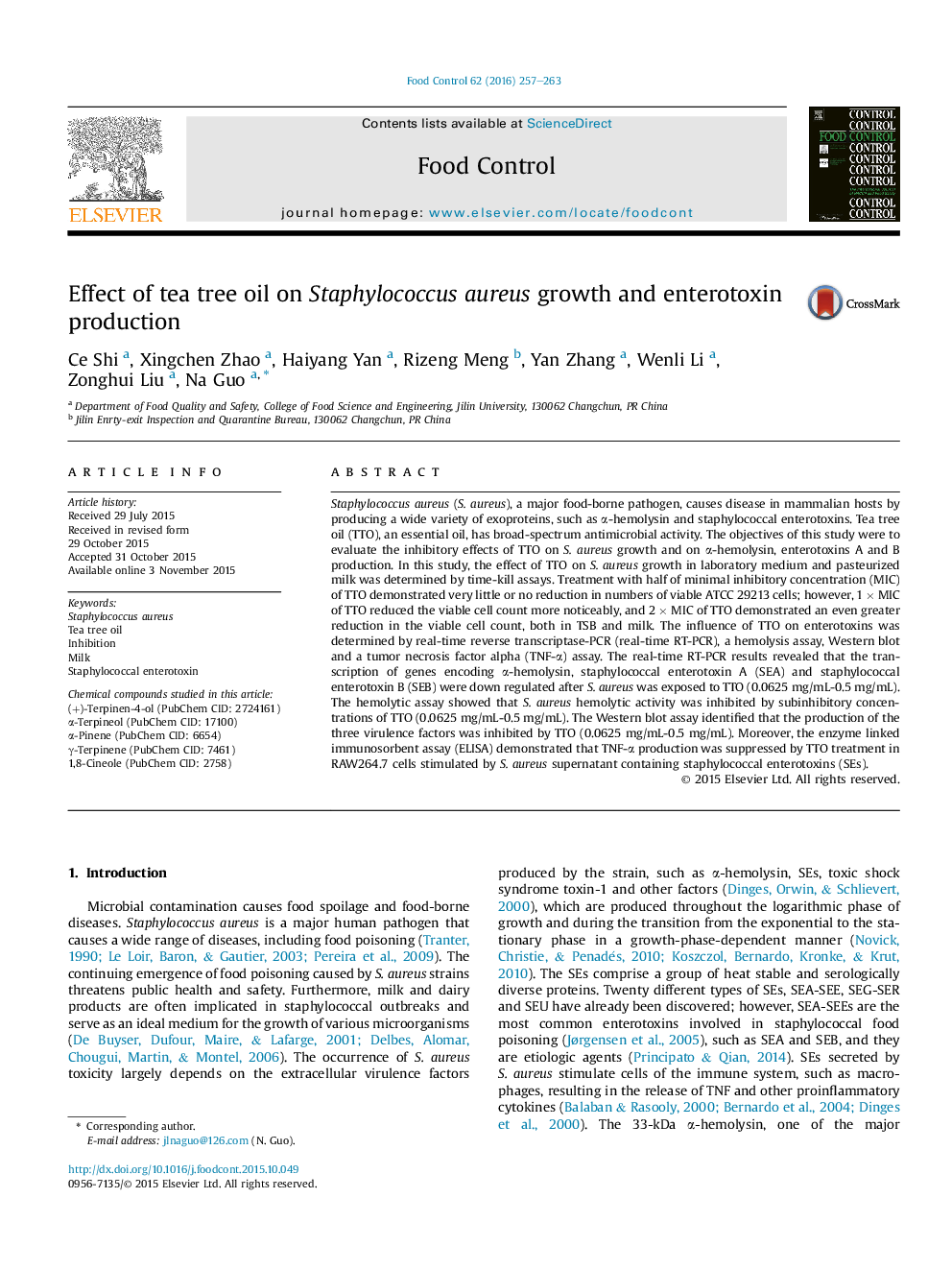| Article ID | Journal | Published Year | Pages | File Type |
|---|---|---|---|---|
| 6390450 | Food Control | 2016 | 7 Pages |
Abstract
Staphylococcus aureus (S. aureus), a major food-borne pathogen, causes disease in mammalian hosts by producing a wide variety of exoproteins, such as α-hemolysin and staphylococcal enterotoxins. Tea tree oil (TTO), an essential oil, has broad-spectrum antimicrobial activity. The objectives of this study were to evaluate the inhibitory effects of TTO on S. aureus growth and on α-hemolysin, enterotoxins A and B production. In this study, the effect of TTO on S. aureus growth in laboratory medium and pasteurized milk was determined by time-kill assays. Treatment with half of minimal inhibitory concentration (MIC) of TTO demonstrated very little or no reduction in numbers of viable ATCC 29213 cells; however, 1 Ã MIC of TTO reduced the viable cell count more noticeably, and 2 Ã MIC of TTO demonstrated an even greater reduction in the viable cell count, both in TSB and milk. The influence of TTO on enterotoxins was determined by real-time reverse transcriptase-PCR (real-time RT-PCR), a hemolysis assay, Western blot and a tumor necrosis factor alpha (TNF-α) assay. The real-time RT-PCR results revealed that the transcription of genes encoding α-hemolysin, staphylococcal enterotoxin A (SEA) and staphylococcal enterotoxin B (SEB) were down regulated after S. aureus was exposed to TTO (0.0625 mg/mL-0.5 mg/mL). The hemolytic assay showed that S. aureus hemolytic activity was inhibited by subinhibitory concentrations of TTO (0.0625 mg/mL-0.5 mg/mL). The Western blot assay identified that the production of the three virulence factors was inhibited by TTO (0.0625 mg/mL-0.5 mg/mL). Moreover, the enzyme linked immunosorbent assay (ELISA) demonstrated that TNF-α production was suppressed by TTO treatment in RAW264.7 cells stimulated by S. aureus supernatant containing staphylococcal enterotoxins (SEs).
Keywords
Related Topics
Life Sciences
Agricultural and Biological Sciences
Food Science
Authors
Ce Shi, Xingchen Zhao, Haiyang Yan, Rizeng Meng, Yan Zhang, Wenli Li, Zonghui Liu, Na Guo,
